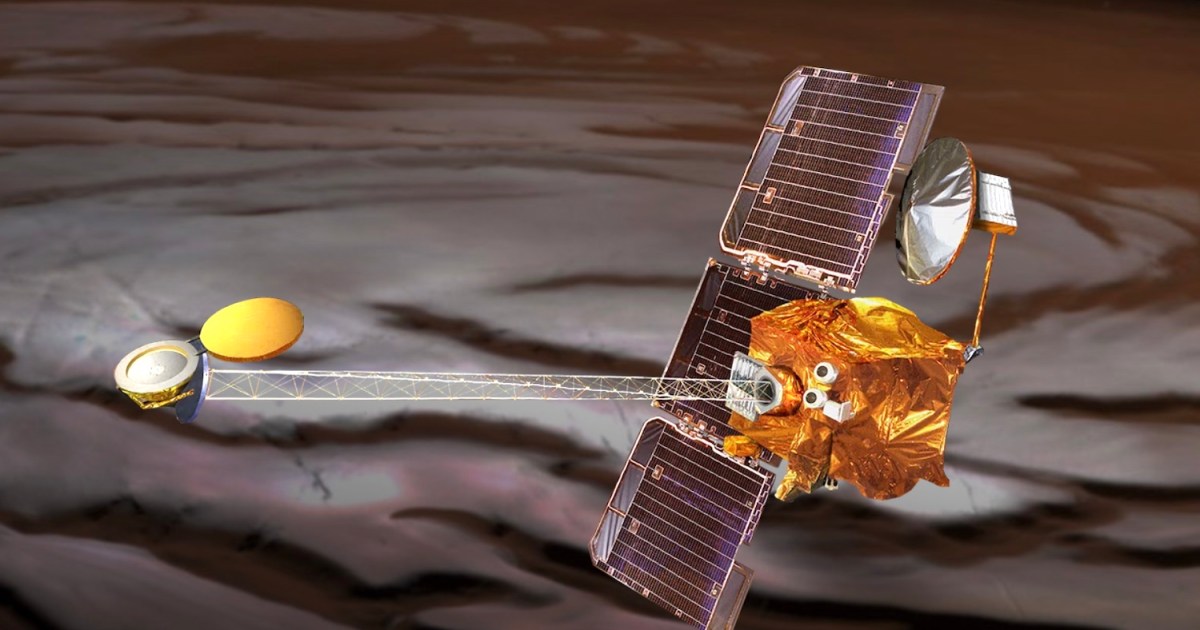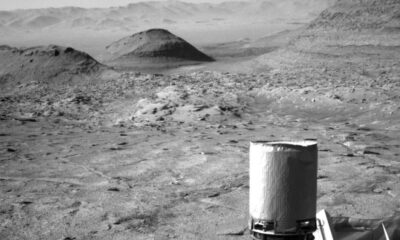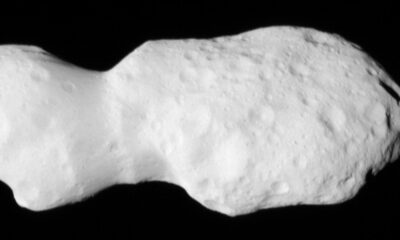Tech News
NASA’s Mars Odyssey Orbiter just reached a major milestone

NASA’s Mars Odyssey Orbiter is one of seven currently circling the red planet (three of them belonging to NASA), capturing imagery and performing tasks from way up to help scientists learn more about the fourth planet from the sun.
On Sunday, the Mars Odyssey Orbiter completed 100,000 orbits since arriving at the distant rock 23 years ago.
“During that time, the 2001 Mars Odyssey orbiter has been mapping minerals and ice across the Martian surface, identifying landing sites for future missions, and relaying data to Earth from NASA’s rovers and landers,” NASA said in a post on its website marking the milestone. Those rovers and landers include the still-operating Perseverance and Curiosity rovers, and NASA’s InSight lander, which communicated with the orbiter for the final time at the end of December 2022 after four years of service.
The Odyssey Orbiter also recently captured a new view of Mars’ Olympus Mons, the tallest volcano in the solar system. “Besides providing an unprecedented view of the volcano, the image helps scientists study different layers of material in the atmosphere, including clouds and dust,” NASA said.
The orbiter even managed to photograph NASA’s Ingenuity helicopter, which became the first aircraft to achieve powered and controlled flight on another planet in 2021 before ending operations earlier this year.
Over the last couple of decades, the Mars Odyssey Orbiter has captured some 1.4 million images and beamed back to scientists a massive 17.1 terabits of data.
“It takes careful monitoring to keep a mission going this long while maintaining a historical timeline of scientific planning and execution — and innovative engineering practices,” said Odyssey’s project manager, Joseph Hunt, of NASA’s Jet Propulsion Laboratory, which oversees the Odyssey mission, adding: “We’re looking forward to collecting more great science in the years ahead.”
-

 Destination8 months ago
Destination8 months agoSingapore Airlines CEO set to join board of Air India, BA News, BA
-

 Breaking News10 months ago
Breaking News10 months agoCroatia to reintroduce compulsory military draft as regional tensions soar
-

 Gadgets3 months ago
Gadgets3 months agoSupernatural Season 16 Revival News, Cast, Plot and Release Date
-

 Tech News12 months ago
Tech News12 months agoBangladeshi police agents accused of selling citizens’ personal information on Telegram
-

 Productivity11 months ago
Productivity11 months agoHow Your Contact Center Can Become A Customer Engagement Center
-

 Gadgets3 weeks ago
Gadgets3 weeks agoFallout Season 2 Potential Release Date, Cast, Plot and News
-

 Breaking News10 months ago
Breaking News10 months agoBangladesh crisis: Refaat Ahmed sworn in as Bangladesh’s new chief justice
-

 Toys12 months ago
Toys12 months ago15 of the Best Trike & Tricycles Mums Recommend






















